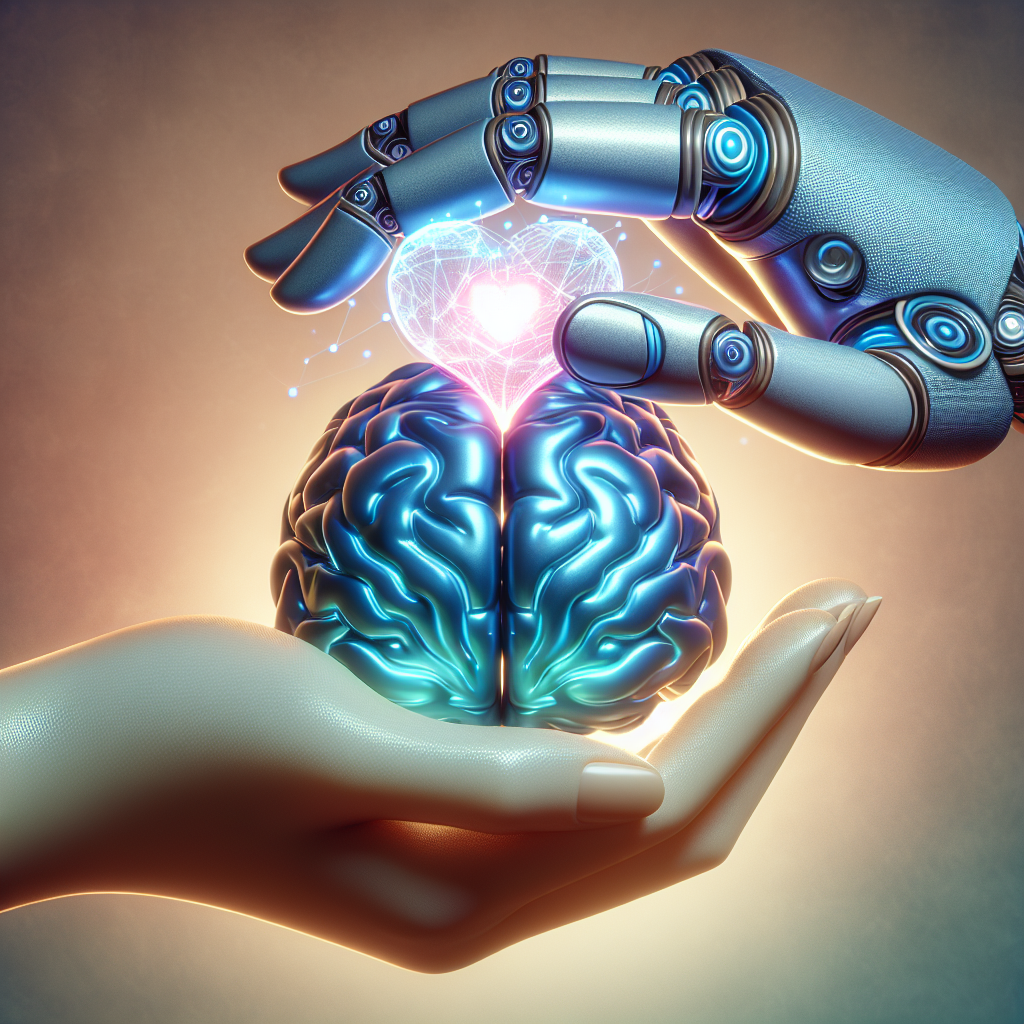The Impact of AI Tools on Mental Health Care
In recent years, advancements in artificial intelligence (AI) technology have revolutionized various industries, including healthcare. One area that has seen significant growth and development is the use of AI tools in mental health care. These tools have the potential to enhance the efficiency, accuracy, and accessibility of mental health services, ultimately improving patient outcomes and reducing the burden on healthcare providers.
AI tools in mental health care can take many forms, including chatbots, virtual therapists, predictive analytics, and personalized treatment recommendations. These tools leverage machine learning algorithms to analyze large amounts of data and provide insights into mental health conditions, enabling clinicians to make more informed decisions about diagnosis and treatment. AI can also help identify patterns and trends in patient behavior, allowing for early intervention and personalized care plans.
One of the key benefits of AI tools in mental health care is their ability to increase access to services for individuals who may not have easy access to traditional in-person care. For example, chatbots and virtual therapists can provide support and guidance to individuals in remote or underserved areas, offering a convenient and cost-effective alternative to traditional therapy sessions. This can be particularly beneficial for individuals with stigmatized mental health conditions who may be reluctant to seek help in person.
AI tools can also help address the growing demand for mental health services by automating routine tasks and freeing up clinicians to focus on more complex cases. For example, predictive analytics can help identify high-risk patients who may need additional support, allowing clinicians to prioritize their care and intervene before a crisis occurs. This can help reduce the burden on healthcare providers and improve overall patient outcomes.
Additionally, AI tools can enhance the quality of care provided to patients by providing more accurate and personalized treatment recommendations. By analyzing a patient’s medical history, symptoms, and other relevant data, AI algorithms can help clinicians identify the most effective treatment options for each individual, leading to better outcomes and improved patient satisfaction.
Despite the many potential benefits of AI tools in mental health care, there are also some challenges and concerns that need to be addressed. One of the main concerns is the potential for AI tools to perpetuate biases and inequalities in healthcare. For example, if the algorithms used in these tools are not properly trained on diverse and representative data sets, they may inadvertently reinforce existing biases and disparities in mental health care.
Another concern is the issue of data privacy and security. AI tools rely on large amounts of sensitive patient data to make accurate predictions and recommendations, raising concerns about the security and confidentiality of this information. It is important for healthcare providers to implement robust data protection measures and adhere to strict privacy regulations to ensure that patient information is kept secure and confidential.
FAQs
Q: How accurate are AI tools in diagnosing mental health conditions?
A: AI tools can be highly accurate in diagnosing mental health conditions, especially when trained on large and diverse data sets. However, they should be used as a supplement to clinical evaluation by a trained healthcare provider, rather than a replacement for professional diagnosis and treatment.
Q: Are AI tools in mental health care affordable and accessible to everyone?
A: The cost and accessibility of AI tools in mental health care can vary depending on the specific tool and provider. Some tools may be more affordable and accessible than traditional in-person therapy sessions, making them a cost-effective option for individuals with limited resources.
Q: Can AI tools replace human therapists and clinicians?
A: While AI tools can provide valuable support and assistance to therapists and clinicians, they are not intended to replace human interaction and empathy. The best approach is to use AI tools as a complementary tool to enhance the quality and efficiency of mental health care services.
Q: How can I ensure the privacy and security of my data when using AI tools in mental health care?
A: It is important to choose a reputable healthcare provider that adheres to strict data protection measures and privacy regulations. Make sure to read the provider’s privacy policy and terms of service carefully to understand how your data will be used and protected.
In conclusion, AI tools have the potential to transform mental health care by increasing access to services, improving patient outcomes, and reducing the burden on healthcare providers. While there are challenges and concerns that need to be addressed, the benefits of AI tools in mental health care are clear. By leveraging the power of AI technology, we can enhance the quality and efficiency of mental health services, ultimately improving the lives of individuals struggling with mental health conditions.

